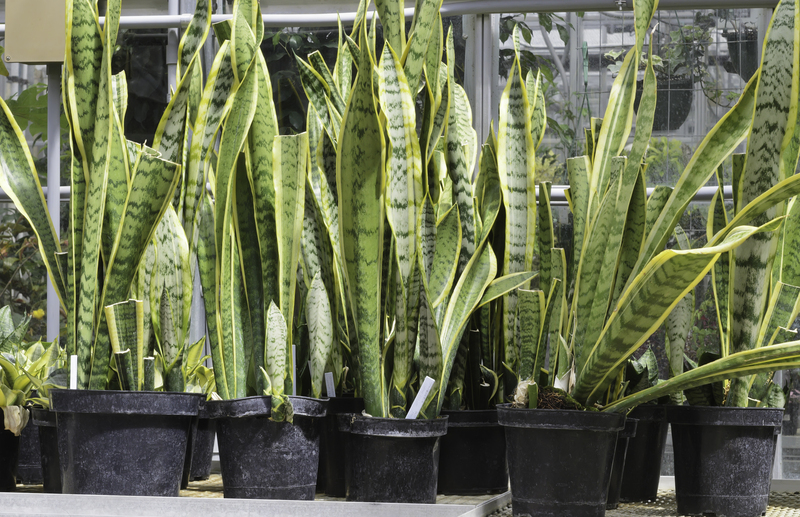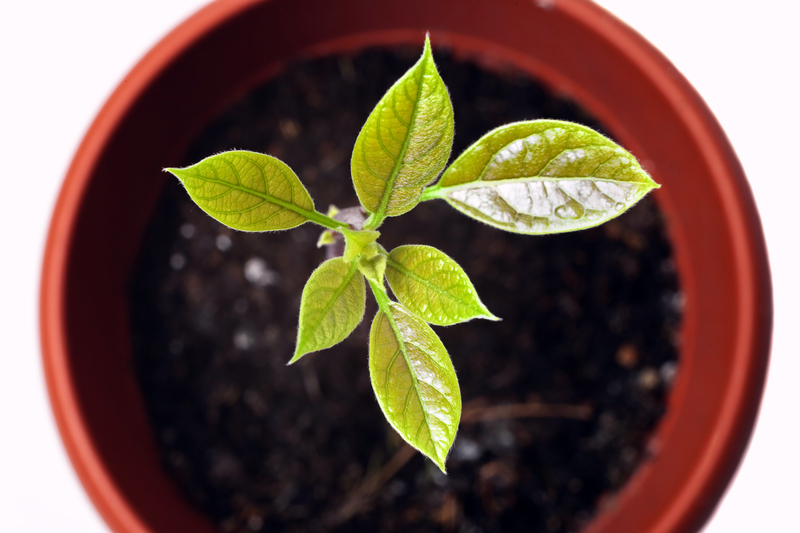Elevate Your Home Cooking with a Personal Herb Garden
Posted on 30/06/2025
Elevate Your Home Cooking with a Personal Herb Garden
Are you someone who cherishes home cooking and dreams of infusing every dish with fresh, vibrant flavors? Discover how cultivating your very own herb garden can revolutionize your kitchen creations. From flavor enhancement to health benefits, a personal herb garden is your secret ingredient to becoming a gourmet chef in your own home. In this comprehensive guide, we'll explore why and how to start growing herbs at home, the best herbs for any kitchen, and creative ways to use them in your cooking.
Why Cultivate a Personal Herb Garden?
The growing movement towards fresh, homegrown food has brought the humble herb garden into the spotlight. Let's look at the compelling reasons to start your own:
- Unmatched Freshness: Nothing beats the flavor of freshly picked herbs straight from your garden to your pan.
- Cost-Effective: A personal herb garden is an economical way to enjoy premium-quality herbs year-round.
- Health Benefits: Many herbs carry powerful antioxidants, vitamins, and nutrients that store-bought, dried herbs simply can't match.
- Eco-Friendly: Reduce packaging waste and carbon footprint by growing your own herbs.
- Home Decor and Fragrance: Fresh herbs bring greenery, life, and delightful scents to your indoor or outdoor space.

Planning Your Home Herb Garden
Ready to elevate your cooking with a personal herb garden? Proper planning ensures a lush, productive garden that will supply you all year:
Choosing the Right Location
- Sunlight: Most culinary herbs crave at least 6 hours of sunlight daily. Windowsills, balconies, patios, or well-lit kitchen corners are ideal.
- Soil: Use well-drained, nutrient-rich soil. Potting mix with compost works best for containers.
- Space: Even in small apartments, vertical or windowsill gardening allows for a robust indoor herb garden.
Indoors or Outdoors?
- Indoor Herb Gardens are perfect for year-round access, especially in colder climates or if you lack outdoor space.
- Outdoor Herb Gardens typically produce larger, more vigorous plants during warm months, giving you an abundant harvest.
Choosing Your Herbs
The heart of your personal herb garden is your choice of herbs. Consider:
- Basil: Perfect for pastas, salads, and pesto.
- Parsley: A versatile garnish and flavor boost.
- Rosemary: Fantastic with roasted meats and vegetables.
- Mint: Great for teas, desserts, and cocktails.
- Cilantro (Coriander): Ideal for salsas, curries, and salads.
- Thyme: Versatile in soups, stews, and baked dishes.
- Dill: Classic with fish, eggs, and pickles.
- Chives: Mild, oniony flavor for dips and toppings.
Start with what you love to cook, and expand as you gain confidence!
How to Start Your Herb Garden
Seeds or Seedlings?
- Seeds: More economical and offer a wider variety, but require patience.
- Seedlings: Ready-to-transplant plants; ideal for beginners wanting quick results.
Containers and Soil
- Pots: Ensure drainage holes to prevent root rot.
- Size: Large enough to accommodate growing roots (generally 6-8 inches in diameter for most herbs).
- Soil: Use high-quality potting soil mixed with compost for best results.
Planting and Spacing
- Planting Seeds: Gently press seeds into moist soil, cover lightly, and keep warm until they sprout.
- Transplanting Seedlings: Carefully loosen roots, set in the soil, and water well.
- Spacing: Herbs need space for air circulation and maximum sunlight.
Watering and Feeding
- Consistency: Herbs dislike overwatering. Water when the top inch of soil feels dry.
- Fertilizer: Use a liquid organic fertilizer every 4-6 weeks. Too much fertilizer can reduce flavor intensity.
Maintaining Your Home Herb Garden
Regular care ensures a thriving garden ready to flavor your kitchen.
Pruning and Harvesting
- Pinching: Pinch off the tops of basil and mint regularly to promote bushier growth.
- Snip, Don't Yank: Use scissors or garden shears to avoid damaging the plant.
- Harvest Gradually: Pick as needed, leaving enough for continuous growth.
Pest Prevention
Most kitchen herbs are naturally pest-resistant, but watch for aphids or fungal spots. Rinse leaves gently and keep plants well-ventilated.
The Best Kitchen Herbs: Varieties and Uses
Let's dive deeper into popular herbs for your personal home garden:
Basil
- Best for: Italian, Thai, and Greek dishes.
- Cooking Tips: Add at the end of cooking to preserve flavor. Try basil in homemade pizza, Caprese salads, and pesto.
Rosemary
- Best for: Roasting meats, potatoes, and focaccia bread.
- Cooking Tips: Its woody stems can flavor stews--remove before serving.
Mint
- Best for: Drinks, salads, lamb dishes, and desserts.
- Cooking Tips: Crush leaves for maximum aroma; beware, mint spreads enthusiastic roots--keep in pots.
Parsley
- Best for: Garnishing, tabbouleh, chimichurri sauce, and soups.
- Cooking Tips: Use fresh at the end for a bright finish.
Thyme
- Best for: Poultry, vegetables, sauces, and marinades.
- Cooking Tips: Sprigs can be simmered whole and removed later. Pairs well with lemon and garlic.
Cilantro
- Best for: Latin American, Indian, and Asian cuisines.
- Cooking Tips: Use fresh, as cooking diminishes flavor. Sprinkle on tacos, curries, and salads.
Creative Ways to Use Homegrown Herbs
Once your kitchen herb garden flourishes, you'll want exciting new ways to incorporate your harvest. Here are creative ideas to inspire:
- Herb-infused Oils and Vinegars: Steep rosemary, basil, or thyme in olive oil or vinegar for a gourmet dressing or marinade.
- DIY Pesto: Blend basil, garlic, nuts, and olive oil for a classic green sauce. Experiment with parsley or cilantro pestos.
- Herb Butters: Mix chopped chives, parsley, or dill into softened butter--delicious on bread, vegetables, or steaks.
- Homemade Teas: Brew fresh mint or lemon balm for soothing herbal infusions.
- Garnish Everything: Elevate soups, salads, and omelets with a final flourish of fresh herbs.
- Herbal Cocktails: Muddle mint, basil, or thyme into cocktails for a twist on classics.
Preserving and Storing Your Herbs
If your home herb garden produces an abundant crop, don't let anything go to waste:
- Drying: Air-dry bunches in a cool, dry place. Store in airtight jars away from sunlight.
- Freezing: Chop and freeze in ice cube trays with olive oil or water for ready-to-use portions.
- Pesto or Purees: Blend extra basil or parsley and freeze for future use.
- Infused Honey or Sugar: Layer fresh rosemary or lavender in jars with sugar or honey; let flavors blend.
Common Questions About Herb Gardening at Home
How much maintenance do herb gardens require?
Herb gardens are generally low-maintenance. Regular watering, occasional feeding, and harvesting keep your plants healthy. Most beginner-friendly herbs thrive with minimal attention.
How do I prevent herbs from dying?
- Overwatering is the most common mistake. Ensure your soil drains well, and only water when the topsoil feels dry.
- Monitor sunlight. Most herbs need several hours of bright light daily.
- Avoid crowding. Space plants so air can circulate freely.
What containers work best for an indoor herb garden?
Pots with drainage holes, window boxes, mason jars, and vertical wall planters are popular choices for growing herbs indoors. Just make sure the roots aren't sitting in water.
Can I grow herbs in a hydroponic system?
Absolutely. Hydroponic herb gardens use water and nutrients instead of soil and are highly efficient for small spaces or year-round growing.

Conclusion: Transform Your Cooking and Wellbeing
Elevate your home cooking by cultivating a personal herb garden. With each snip, you unlock fragrances and flavors that transform everyday dishes into culinary delights. Beyond taste, fresh herbs bring health, beauty, and creativity into your kitchen, enhancing every meal and moment. Whether you're working with a sunny balcony, a kitchen windowsill, or a backyard patch of earth, it's simple to start and endlessly rewarding.
Take the first step today - plant a seed, nurture a sprig, and watch your cooking (and confidence!) grow.
Resources and Further Reading
- Royal Horticultural Society: Grow Your Own Herbs
- Better Homes & Gardens: Growing Herbs Indoors
- The Old Farmer's Almanac: Planting and Growing Herbs
- Food Network's Guide to Cooking with Fresh Herbs
Latest Posts
Crafting Fertile Grounds from Organic Waste Materials
Your Pathway to a Blossoming Garden: 9 Beginner's Tips
Explore how your backyard garden can be a tool for climate action
Keep Your Garden Safe: Combat Extreme Weather Conditions
Revitalize Your Garden with Creative and Comfortable Seating Ideas

